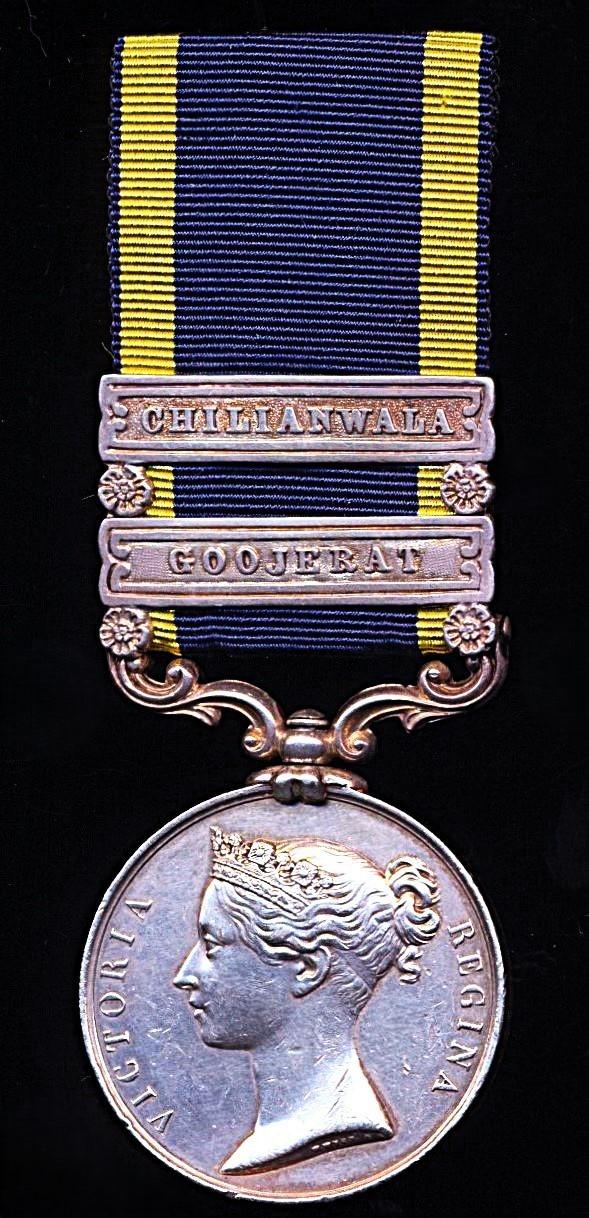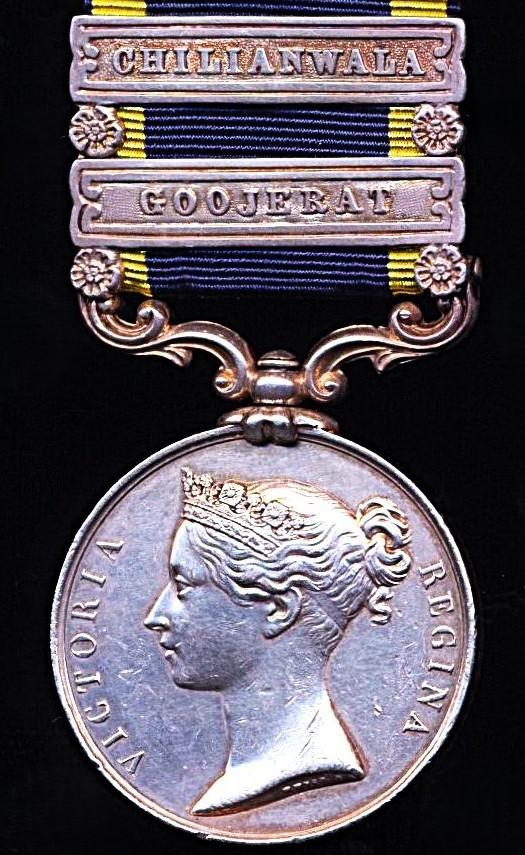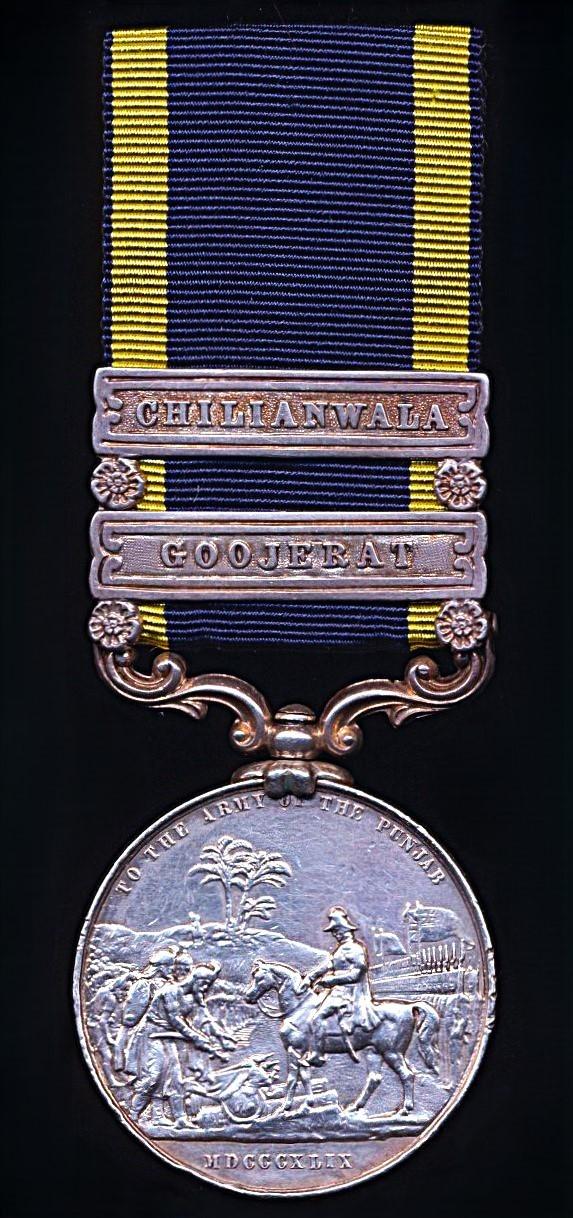Punjab 1848-49. With 2 x clasps 'Goojerat' & 'Chilianwala' (Henry Pearce. 14th Lt Dragns)
Twice Wounded-in-Action: During the Indian Mutiny Henry Pearce was wounded in two different actions - including once by a sword cut - firstly at the battle of Betwa, 1 April 1858, a historic Victoria Cross engagement for the 14th Light Dragoons, and secondly at Koonch on 7 May 1858
Medal(s) & Clasps Verification: The Punjab Medal and both clasps, together with later campaign medals and clasps are all confirmed as entitled per the recipients extant service papers that are held and accessible at The National Archives. Note the medal rolls for the Punjab and IGS 1854 Persia campaign, are not currently accessible using on-line digital search engines / dow
- Punjab Medal 1848-49. With clasp Goojerat' & 'Chillianwala': Recipients extant service papers refer
- IGS 1854 with clasp 'Persia': Recipients extant service papers refer
- Indian Mutiny Medal & clasp 'Central India': WO 100/35
Henry Pearce was a native of Feltham, Hounslow, Middlesex, England, where he was born in 1824 . by trade a 'Butcher' he enlisted in the British Army on 30 June 1846, and on the same day was posted to the 14th Light Dragoons and given the regimental number No. 1465. He subsequently served a total of 17 years 263 days, with the British Army all of which was with the 14th Light Dragoons. During which he served 12 years 3 months overseas in the 'East Indies' (India and including the expedition to Persia) and included active service in three wars. His service papers contain considerable details about the actions he fought in the Punjab and Indian Mutiny campaigns as under:
Punjab 1848-49: Served with the Army of the Punjaub in 1848-49 and was present at the affair at Ramnugger, and at the Battles of Chillianwalla and Goojerat. Present at the 'Surrender of the Sikh Army', the occupation of Attock & Peshawur, and the expulsion of the Affghans beyond the Khyber Pass. Received the Medal for services in the Punjaub Campaign, a Bar for the Battle of Chillianwalla, and one for the Battle of Goojerat.
Indian Mutiny: Served with the Central India Field Force in 1857-58, under the Command of Major General Sir Hugh Rose, K.C.B., and was present at the Capture of Ralghur 29th January, Action of Barodia 31st January, and pursuit of the Rebels 13th February, Forcing Muddenpore Pass 3rd March, Battle of the Betwa 1st April, Siege and Capture of Jhansi 5th April, Action of Koonch 7th May, Battle of Gollowlie 22nd May, Advance on & Capture of Calpee and pursuit of the Rebels 23rd May, Capture of Morar Cantonments 16th June, and Recapture of Town and Fortress of Gwalior 19 June 1858. Entitled to Medal, Clasp and Prize Money for services in Central India
Battle of Betwa Regimental Victoria Cross Action: Captain James Leith (a Scottish Officer, of Leith Hall, Glenkindie, Aberdeenshire) was awarded the Victoria Cross for rescuing a fellow officer. 1st April 1858, Tantia Topi was routed by General Rose’s force in a fierce battle on the River Betwa. In order to cover his withdrawal over the river, Topi set the jungle on fire and crossed the river under the cover of the smoke. The 14th Light Dragoons were engaged on both flanks of the pursuit; Captain Arthur Need chased enemy in among some rocks and was set upon by a mob of angry Mahrattas who were hacking at him with their tulwars. His jacket, saddlery and reins were cut. He was completely isolated and in great danger of his life. Captain James Leith, also of the 14th, charged single-handedly to his rescue, beating off the enemy attacking Captain Need. Leith’s citation for the Victoria Cross reads “For conspicuous bravery at Betwa…in having charged alone and rescued Captain Need of the same regiment when surrounded by a large number of rebel infantry.”
Henry Pearce was discharged from the British Army on 3 May 1864, his intended place of future residence shown as:
13 New North Road
Tedington
London
Condition: VF
Code: 24762







